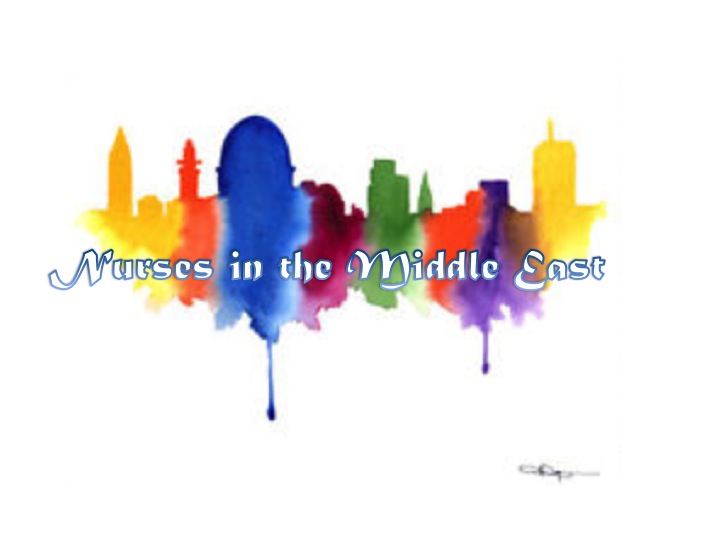Description
In understanding the issues that face our communities globally today, we, as nurses, recognize that we are the Leaders, the Educators and the Caregivers not only to our local communities, but to the world. By aligning ourselves with the UN Millennium Goals, we recognize the challenges and opportunities that face us in our society today. And it is our hope that through education, leadership and communication that we can transcend the barriers that are presented to us to create a healing environment locally, nationally and internationally.
Position Statement
In keeping with the UN Millennium Goals, we, the Middle Eastern Nurses of the Watson Caring Science Institute recognize the following challenges:
1. That Access to healthcare is hindered by inadequate delivery systems; cultural and governmental barriers to quality healthcare; and a worldwide shortage of Qualified Healthcare Providers.
2. That there is an absence of Education within the global community, not just of mothers, but of fathers, families, community and religious leaders to the complications of teenage pregnancies.
3. That there insufficient communication channels between healthcare systems that lead to a delay in communication of critical healthcare information.
4. That extreme poverty, diminished resources, discrimination, health and resource disparities and restricted access to care hinder the health care process and in turn decreases the quality of care that we are able to provide our patients as a whole.
By recognizing these challenges, we are aware of the following opportunities:
1. That by increasing awareness and recruitment we can create Sustainable Nursing Workforces at the local level.
2. That early education of Mothers, Fathers, Families, community and Religious Leaders can lead to positive outcomes of children and families and the community as a whole.
3. That innovative models of care delivery are needed improve access to resources and availability of services in a culturally appropriate, efficient, cost and time effective manner, including community-based primary care, maternal/child health and mental health care.
4. That ongoing, frequent multilevel collaboration among government officials, community and tribal leaders, clergy, health care professionals and workers, advocates and all stakeholders to ensure appropriate, culturally sensitive and relevant care goals, with designated targets and assessment/evaluation process are needed.
5. That universal primary education for all (girls and boys) and appropriate health education throughout the life cycle, focusing on health promotion, disease prevention will present opportunities to develop healthy lifestyles for individuals, families and communities.
6. That concerted efforts by government and civil organizations are needed to develop and maintain sustainable nursing, healthcare and mid wife education and lifetime staff development.
7. That ongoing inter-professional dialogue, particularly among nurses, midwives and health professionals is needed to enhance resources and assess areas of greatest need and appropriate allocation of services.
8. That by utilizing social media – twitter, facebook , etc. – we can educate and reach those who otherwise would not have access to education.
9. That by creating a collaboration between our own local healthcare systems, governmental systems and international systems we can identify barriers and discover creative solutions that will benefit those most vulnerable within our own societies
Background
Watson Caring Science Institute 3rd Annual Conference of Middle Eastern Nurses – Human Caring in a Time of World Crisis: Transcending Culture and Boundaries, brought together nurses from across the Middle East – Palestine, Jerusalem, Israel, Bahrain, Iran, Saudi Arabia and Dubai – and the USA to discuss the issues that face us daily.
Through our collaboration and exchange of ideas we recognized that we, the nurses, are the Leaders, the Educators and the Caregivers of the world.
We understand that as Leaders we can affect change through communication and collaboration at the community, government and International Level.
As Educators, we understand that there are opportunities to provide the knowledge needed to prevent teenage pregnancies to both men and women; the tools to new mothers to ensure safe delivery and care of their newborns; and the resources needed to our communities to raise the level of awareness to the benefit of preventative medicine.
And finally, as Caregivers, we recognize and understand the barriers to care – the lack of qualified caregivers; governmental regulations such as military checkpoints and delay in approval of travel to needed skilled care centers; and cultural bias that can prevent or hinder timely needed care.
References
United Nations. Millennium Development Goals. Downloaded February 21, 2015 from http://www.un.org/millenniumgoals/
Watson Caring Science Institute & International Caritas Consortium. Middle Easter Nurses & Partners United in Human Caring. Downloaded February 21, 2015 from http://watsoncaringscience.org/education-programs/intro-to-human-caring/middle-eastern-nurses-project/

